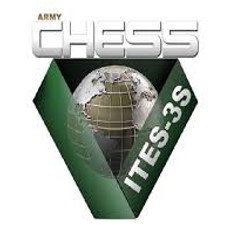In an era where organizations are rapidly adopting artificial intelligence (AI), data modeling skills have become critically essential. These skills provide the clarity, structure, and consistency necessary for harnessing data as a strategic asset.
AI systems are fundamentally driven by data. Accordingly, the quality and structure of data directly determines AI's effectiveness. Without robust data modeling, AI initiatives risk failure due to bias, inefficiency, and misalignment with business objectives.
Establishes a Clear, Unified Understanding of Business Data
Effective AI relies heavily on structured, clearly defined data. Data modeling ensures clarity by defining core business entities such as customers, products, and transactions, along with their attributes and relationships.
Data Modeling bridges the gap between technical data structures and business context, fostering a shared understanding among stakeholders. For instance, large retail organizations use comprehensive data models to accurately understand customer behaviors and preferences, enabling precise recommendations and personalized experiences.
Enables High-Quality, Reliable Data for AI Training
The success of AI models heavily depends on data quality. Poor data quality inevitably results in poor AI outcomes. Data modeling ensures data integrity through normalization, validation, and maintaining referential integrity.
This practice effectively identifies and resolves gaps, duplications, and inconsistencies across data systems, ensuring the data feeding AI models is accurate and trustworthy. Banks implementing AI-driven fraud detection rigorously model transaction data to ensure reliable fraud predictions and reduce false positives.
Provides the Semantic Framework for Feature Engineering
Feature engineering, a critical stage in AI model development, depends on well-structured data. Data modeling provides semantic clarity, defining how data elements correlate to real-world business concepts.
This clarity is essential for selecting and engineering meaningful features. Companies such as Netflix leverage detailed data modeling to identify patterns in viewer behavior, effectively enhancing the accuracy of their predictive recommendation algorithms.
Supports Data Governance, Compliance, and Ethics
As AI applications face growing scrutiny for ethical and regulatory compliance, data modeling becomes indispensable. Effective data modeling documents data lineage and provenance, crucial for audit trails and regulatory compliance.
Data modeling identifies sensitive or regulated data, ensuring compliance with laws like GDPR and HIPAA. Healthcare organizations rigorously apply data modeling practices to manage sensitive patient information securely, supporting ethical AI applications and robust regulatory compliance.
Facilitates System Integration and Data Interoperability
AI-driven insights often require integrating data from multiple systems. Data modeling standardizes data definitions across platforms, enabling seamless integration. Data Modeling simplifies translating data between legacy systems and modern cloud-based AI environments, significantly reducing data wrangling and accelerating AI project deployment.
Automotive manufacturers, such as Tesla, utilize sophisticated data models to integrate sensor data from diverse systems, enhancing the efficiency and accuracy of autonomous driving systems.
Enhances Explainability and Trust in AI
AI-driven decisions must be transparent and explainable to stakeholders. Data modeling simplifies the interpretation of model outputs by clearly defining the roles and meanings of data elements.
This approach supports Explainable AI (XAI) initiatives, enhancing trust and adoption among non-technical users. Financial services companies, for example, rely on clear data models to transparently communicate the rationale behind AI-driven credit decisions, improving customer trust and regulatory compliance.
Accelerates Scalable, Sustainable AI Development
Data modeling skills support the creation of reusable data frameworks and design patterns, significantly accelerating the scalability and sustainability of AI development. Data models reduce duplicated efforts across data science teams and enable agile, adaptable data architectures.
Documenting and version-controlling data models ensures smooth ongoing model maintenance and retraining, crucial for long-term AI success. Major tech companies like Google utilize robust data modeling to support scalable machine learning platforms deployed across diverse products and services.
Aligns AI Development with Business Strategy
Ultimately, AI initiatives must align with business goals to deliver tangible value. Data modeling ensures AI efforts remain anchored in business-driven questions and metrics.
By clearly linking AI outcomes back to strategic business objectives and process improvements, data modeling ensures AI delivers real business value rather than mere technical sophistication.
Insurance companies, for instance, employ comprehensive data modeling to align AI-driven claims processing with broader business goals of customer satisfaction and operational efficiency.
Conclusion
In AI-enabled organizations, data modeling skills form the backbone of intelligent decision-making and strategic alignment. Effective data modeling ensures data accuracy, consistency, and relevance, directly supporting robust, explainable, and compliant AI models aligned with business objectives.
To leverage the transformative power of AI fully, organizations must prioritize developing strong data modeling capabilities.
To build and enhance your Data Modeling skills for the AI era, take a look at Inteq’s Data Modeling and Relational Data Design training course and Inteq’s Data Modeling and Analytics Specialist certificate program.
* * * * *
Master of Chaos Newsletter (try it)
Subscribe to my blog | Visit our Knowledge Hub
Visit my YouTube Channel | Connect with me on LinkedIn
Check out our Business Analysis Training Courses & Consulting Services




















